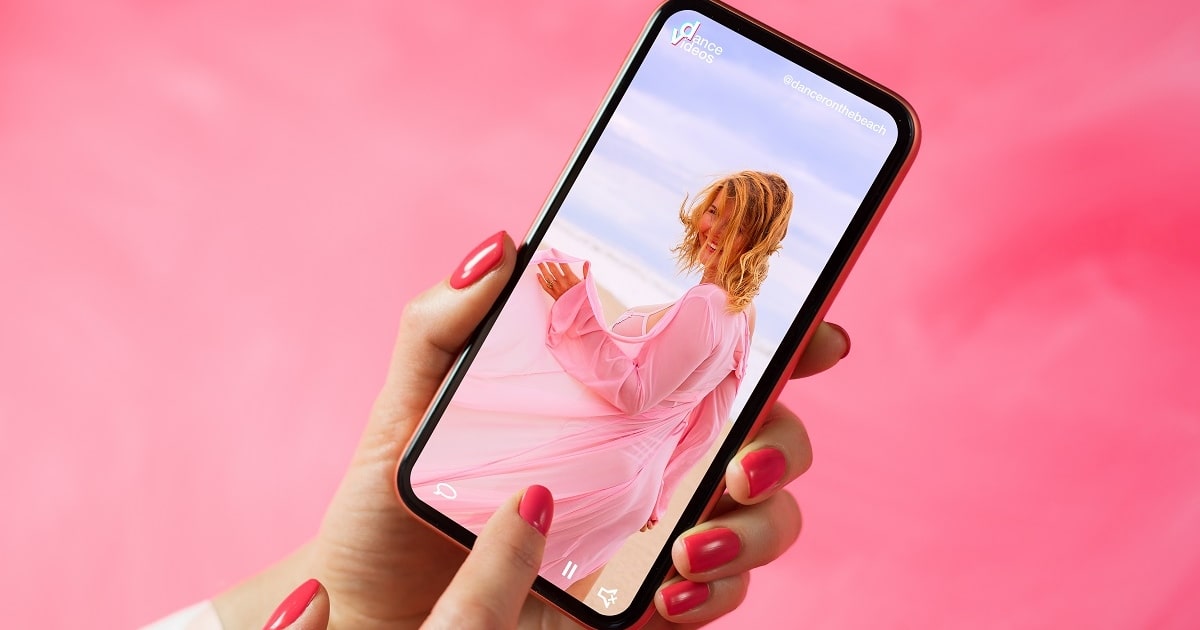Summary: TikTok is an extremely popular social media app where people can create, watch and share short videos. There are many security concerns about the app and how it collects personal data. Discover other safety concerns and how to protect your data when using TikTok. 
What Is TikTok?
TikTok is a social media app allowing users to make and share short-form 15-60 second videos. The platform enables users to upload or produce videos within the app. Users can utilize the app’s special effects tools, filters, timers, etc., to help them make videos. TikTok videos run the gambit from entertainment to information, advice and self-promotion.
TikTok was formally launched in 2018 and, as of late 2021, had one billion active monthly users worldwide with over
3.5 billion downloads. The app is available in more than 150 markets and over 35 languages.
TikTok Security and Privacy Threats
Whenever you use a social media app or any web-based tech, you must wonder: How safe is my data, and what are the risks? TikTok has had something of a bad reputation when it comes to security. But does that mean it is risky?
To use the platform, users grant the app access to the microphone and camera. Multiple lawsuits allege that TikTok also collects user biometric data, including facial geometry, iris scans, voice recognition, and fingerprints. As with any web-based application, it is crucial to understand the
potential cyber or privacy risks.
TikTok Personal Data Collection
TikTok knows the device you are using, your location, IP address, Operating System (OS) version, mobile carrier, app and file names and search history. It accesses calendars, scans hard drives, the content of your messages, what you are viewing and for how long. TikTok also collects biometric information, including face and voiceprints, clipboard contents, and typing patterns. TikTok’s privacy policy describes the collection and analysis of user
personally identifiable information (PII) and user data collected from other sources. This data can include age, image, personal contacts, and relationship status. But is all this true? The answer to this question is difficult to ascertain because the app employs many techniques to conceal how it functions. The app also scoops up Wi-Fi SSID information, serial numbers of devices and SIM cards, IMEI numbers, MAC addresses and other unique identifying data.
Potential International Cyber Risks
While TikTok claims all user data is stored in the U.S. and Singapore, TikTok’s parent company
servers are all located in China, and the app contains references to China-based infrastructure. All data stored within China may be shared with the Chinese government for intelligence purposes. Because of this, users should assume that their data is being aggregated and shared with the Chinese government. If the Chinese government can access TikTok data, it could develop targeted campaigns to identify those with access to sensitive intellectual property and execute spear-phishing campaigns to gain access.
Tips for TikTok Users to Protect Personal Data
If you or those you know choose to use TikTok, below are some tips to mitigate potential personal data risks of the popular app:
- Do not overshare: Don't use your full name or specify your age. Keep identifiable personal landmarks like street signs and schools out of view.
- Do not allow other users to find you: By default, TikTok shares your content with the entire app's community. To prevent that, you can turn off "Suggest your account to others," which is located in settings.
- Do not let other users interact with you: In TikTok's settings, you can disable privacy options like "Allow your videos to be downloaded" and restrict "Who can send you direct messages" to just friends.
- Make your account private: By setting your account to "private" in TikTok's Settings menu, you need to approve anyone who tries to follow you, and only your friends can see the content you have liked.
- Set permissions manually: Go to your device settings and deny access to your phone’s camera and voice recorder, etc.
- Stop TikTok tracking you: Turn off “Allow tracking” in your device Settings.
- Turn off access to your contacts, photos, camera and microphone.
- Limit the amount of information you share on TikTok: For example, avoid linking to other social accounts such as Facebook, Instagram or Twitter.
- Update when necessary: As with any app, it is a good idea to use the latest version so you benefit from all of the security patches.

AmTrustCyber Protects Small Businesses
As personal, consumer and company data security risks continue to increase, small businesses must protect their internal records and employee and customer information from data breaches. Every organization should offer
data security training and create a company-wide
data breach policy with a response plan ready to implement when/if it is needed.
Contact us today to learn how you can benefit from an
AmTrustCyber policy and how to protect your organization from cybersecurity attacks and other data breach threats.
This material is for informational purposes only and is not legal or business advice. Neither AmTrust Financial Services, Inc. nor any of its subsidiaries or affiliates represents or warrants that the information contained herein is appropriate or suitable for any specific business or legal purpose. Readers seeking resolution of specific questions should consult their business and/or legal advisors. Coverages may vary by location. Contact your local RSM for more information.